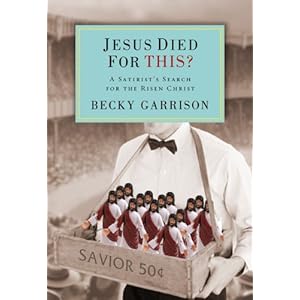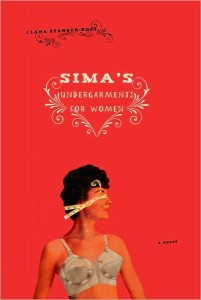Going through old notes, looking for some details for an essay I'm working on, I came across this fragment from years ago, a description of a conversation I wrote after an awkward, mildly drunk evening.
“Mars has this thing where he wants to hear what kind of music I like. Like it’s a way of connecting with me, he wants to hear what I’m listening to, so I’m like, ‘Mars, check this song out.’”
Mike paused and raised his eyebrows, looking at me from the side with his chin tilted down and a confidential smile. We were sitting in a bar with two women, one an old friend of his named Juliette, the other pretty and dark-haired haired with a tiny nose and compressed lips that didn’t utter a word. She was somewhere between date and girlfriend for Mike. She held her arms folded across her chest, her eyes glued to Mike’s crisp profile. She wanted some of his attention. She wasn’t going to get it. Mike wanted to talk to me.
I didn’t know him well. In fact, I’d only spoken with him a few times in the past, even though we’d gone to a small college together and had known the same people. When I ran into him on the street one day, I almost walked right past him. He’d gained weight since college, had let his hair grow out from dyed blue to its natural dark color. He still looked good, but harried, as if despite the extra pounds he was insufficiently padded from the world. But his eyes were sharp, and he recongnized me even though I too had grown softer and blander in appearance. “Hey man,” he said. I stopped, stared, smiled.“You never called me about that coffee.” I gave him a blank look. “You said we’d go out for coffee,” he snapped. His face looked like it’d been mix-and matched from two different people: his mouth grinned, his dark eyes glared.
“You mean last January?” I asked. It was a warm September night.
Mike nodded. “You stood me up, man.” He kept smiling. I considered backing away from him slowly. Instead, I agreed to go out for a beer. A month later he called. “This is John Chavez,” he said.
“Who?” I asked.
“Mike,” he replied, amused and offended that I hadn’t recognized his voice.
We met later that night. The two women joined us, and over beers, Mike began telling us about his childhood and his two fathers, one adoptive, one step: Mars and Dieter. None of us really knew one another, so we were glad to let Mike talk. He talked us from his early childhood to college, where he lingered, our one point of common ground.
“So Mars is lying on my bed one time when he visits me at school”--Mike spreads his hand apart like he’s describing a fish to suggest Mars, who he says is a short, stocky, bushy-haired man--nothing like himself, he points out. “And he says, ‘Mike, I want to tell you something I just learned. Something very important.’ This guy, keep in mind, is forty-nine or fifty. So I say, ‘Sure, Mars, lay it on me.’
“‘It’s something really important,’ he says. ‘You might already know it, but I just learned it, and I want to share it with you because it’s important that you know it in case you don’t.’
Mike grins at us, embodying Mars and mocking his father’s clumsy communication at the same time. “I’m thinking this is probably something really good, like how to avoid those red marks the elastic band of your underwear leaves around your waist. I’m thinking he’s going to tell me something like, ‘Baby powder, Mike, baby powder.’ But then this is what he says: ‘I’ve learned,’ he goes, ‘that most women cannot come through the—the thrust-thrust.’”
Mike pushed his pelvis forward and pulled both arms back, mimicking his father mimicking sex. “I say to Mars, ‘You mean, penetration?’ ‘Yeah,’ he says. ‘Right. Penetration. What they need,’ he says, ‘is stimulation of their digit.’”
Mike pauses. “Their ‘digit,’” he says to us. He holds up a finger and crooks it, gesturing to me, Juliette, and his date in turn. “I say, ‘You mean clitoral stimulation, Dad?’ ‘Right,’ he says. ‘Exactly. You may have already known this, but I just learned it, and I think it’s really important.’
“All I can think is, ‘No wonder my mother divorced you, you bastard.’ I mean I’m like, I’ve known this since the eighth grade, and here’s Mars at age fifty telling me he just learned that women need their digit stimulated. Their digit. And he’s looking out the window, staring away. I can tell he’s really putting himself out for this, he’s crossing the line to tell me something he thinks is really important. And all I can think is, ‘No wonder my mother divorced you, you bastard.’” Mike laughed and took a swig of beer. “What an idiot!” he said with a half-full mouth.
Juliette and I laughed; Mike’s date didn’t. “You gotta meet Mars,” Mike told her. Juliette cupped a hand to her mouth. “Tell ‘Bitch Magnet,’” she whispered.
Mike waved her away. “They don’t wanna hear it.” he said, then turned to me. “You want to hear ‘Bitch Magnet?’”
“What’s ‘Bitch Magnet?’” I asked.
Mike pressed his lips together, smiled, clapped a hand on my shoulder and launched himself into another story. “So another time my mother and my stepfather, Dieter, come to visit me at school. Whereas Mars is an idiot, Dieter’s this tall, blue-eyed, totally Aryan, very educated and stern man. Dieter’s looking around my wall, and at this time I’m in AMC, the alternative music collective. There’s this band coming, called ‘Bitchmagnet.’”
“Oh yeah,” I said, “I remember that. I didn’t think you were into that kind of music then.”
“Did I know you then?”
“No,” I replied, “but I knew who you were. You had blue hair.”
Mike glanced at Juliette, who’d been his friend throughout college. “Blue-black,” she corrected me. It was true; Mike's blue hadn't been the electric blue of a punk but rather a moody sapphire color just shades lighter than Mike's college-years uniform of tight black pants and black jacket.
“Sure,” I said. Then, thinking that we’d been bonded by the foolishness of his fathers, I decided to reveal a secret. “I remember. We used to call you ‘Depeche Mike.’” Mike smiled brightly, as if I'd said something kind. Maybe he'd heard it before. No offense taken.
“I’ll finish the story,” he said. “So anyway, Bitchmagnet was coming. They’ve got this flyer that’s all black and just says, ‘Bitchmagnet.’ It’s hanging on my wall. Dieter comes into my room, checks it out, you know, looks at the flyer and says, ‘What’s that supposed to be, some kind of award?’”
Mike pauses to let us laugh. When we stop, he says, “But that’s humiliating, don’t you think? Your stepfather saying, ‘Is that some kind of award?’”
“What did you say?”
Mike shrugged. “Nothing. I just sat there and took it.” This time he grinned with teeth, a neat row of bright whites. “It’d make a great comic strip, don’t you think? ‘Mars and Dieter.’”
“Sure” I agreed. “Do you draw?”
“No,” Mike replied. “That’s the problem.”
He took another drink. The bartender flicked the bright overheads on and off. Last call. “So,” Mike said, smiling. I waited for another story, or a moral drawn from those he’d already told me. I was watching his lips, ready for him to speak, but I should have paid attention to his eyes, which were clouding over into yet another glare. “So,” he said again, “Who the fuck called me ‘Depeche Mike?’”










